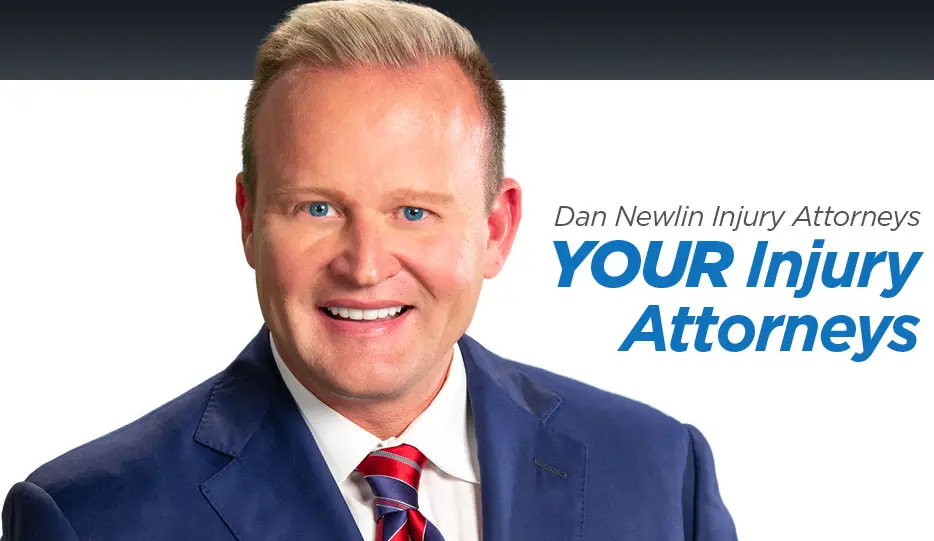FAQ's: Your Questions Answered
FREE CONSULTATION
What is the difference between personal injury claims and a wrongful death claim?
Claims for personal injury and wrongful death have many similarities. Both claims are based upon the theory of negligence- a duty was owed, that duty was breached, and damage resulted from the breach. In both actions, someone suffers an injury. As a result of that injury, there are medical bills and other related economic damages. Despite the many similarities, the two claims are significantly different in regards to who has the ability to bring an action forward and the areas that compensation may be awarded for.
A personal injury claim is based upon an injury that occurs to an individual. A typical personal injury case requires the injured party to received medical treatment for a period of time to address the injuries received. Upon completion of treatment, medical records are gathered and a demand is made on the negligent party for compensation for the injuries sustained. That compensation is normally awarded for three (3) reasons: 1) lost wages, 2) medical bills and 3) pain and suffering. The lost wages are usually for income lost as the result of the injured party not being able to work as a result of being incapacitated as a result of an injury. Medical bills are calculated based upon actual medical care provided to the injured party prior to the demand, and future medical care that is projected by the medical professionals treating the injured party for the injuries suffered. Pain and suffering is awarded based upon the perceived discomfort and disruption of the injured party’s life and activities which resulted from the injuries sustained as the result of the negligent act. The party bringing the action forward in a personal injury claim is the actual person who suffered the injury. In some circumstances, a spouse may have a separate claim for loss of services based upon the injured party being unable to perform certain duties and functions that were provided prior to the injury.
In a wrongful death claim, as the title suggests, the injured party is now deceased. Although medical treatment may have been provided to the deceased for a period of time, future treatment is no longer an issue. The demand is based upon 1) lost wages; 2) medical treatment and 3) funeral expenses. There is no pain and suffering since the injured party is no longer alive The lost wages are calculated based upon future earnings. The medical treatment wages are based upon treatment administered until the time of death. Funeral expenses are calculated based upon the cost of the deceased final arrangements. The most notable differences between personal injury and wrongful death claims are the parties that have to stand to bring the action forward and the rationale for the damages awarded. The action shall be brought by the decedent’s personal representative, who shall recover for the benefit of the decedent’s survivors and estate all damages caused by the injury resulting in death. The purpose of the damages award is to provide for the survivors of the deceased who were dependent upon the deceased for support and maintenance.
While it is not uncommon for a party to have a personal injury claim first, and then have a wrongful death claim later, when a personal injury to the decedent results in death, no action for the personal injury shall survive, and any such action pending at the time of death shall abate. The wrongdoer’s personal representative will take the place of the defendant if the wrongdoer dies before the claim is concluded, or when the action is pending. Any defense that would bar or reduce a survivor’s recovery if she or he were the plaintiff may be asserted against the survivor, but shall not affect the recovery of any other survivor, particularly the surviving spouse.
When dealing with a decision concerning filing a wrongful death claim, it is imperative that you have a qualified, experienced attorney by your side to help you navigate through the legal system to ensure the deceased’s survivors receive all the compensation they deserve. Dan Newlin Injury Attorneys are the ones to call. We have helped over 10,000 accident victims receive the compensation that they deserve when injured as the result of another’s negligence, and we would be honored to help you with every element of your wrongful death claim. Call us at 800-257-1822 for a free consultation and find out what your rights are.
Claims for personal injury and wrongful death have many similarities. Both claims are based upon the theory of negligence- a duty was owed, that duty was breached, and damage resulted from the breach. In both actions, someone suffers an injury. As a result of that injury, there are medical bills and other related economic damages. Despite the many similarities, the two claims are significantly different in regards to who has the ability to bring an action forward and the areas that compensation may be awarded for.
A personal injury claim is based upon an injury that occurs to an individual. A typical personal injury case requires the injured party to received medical treatment for a period of time to address the injuries received. Upon completion of treatment, medical records are gathered and a demand is made on the negligent party for compensation for the injuries sustained. That compensation is normally awarded for three (3) reasons: 1) lost wages, 2) medical bills and 3) pain and suffering. The lost wages are usually for income lost as the result of the injured party not being able to work as a result of being incapacitated as a result of injury. Medical bills are calculated based upon actual medical care provided to the injured party prior to the demand, and future medical care that is projected by the medical professionals treating the injured party for the injuries suffered. Pain and suffering are awarded based upon the perceived discomfort and disruption of the injured party’s life and activities which resulted from the injuries sustained as the result of the negligent act. The party bringing the action forward in a personal injury claim is the actual person who suffered the injury. In some circumstances, a spouse may have a separate claim for loss of services based upon the injured party being unable to perform certain duties and functions that were provided prior to the injury.
In a wrongful death claim, as the title suggests, the injured party is now deceased. Although medical treatment may have been provided to the deceased for a period of time, future treatment is no longer an issue. The demand is based upon 1) lost wages; 2) medical treatment and 3) funeral expenses. There is no pain and suffering since the injured party is no longer alive. The lost wages are calculated based upon future earnings. The medical treatment wages are based upon treatment administered until the time of death. Funeral expenses, obviously, are calculated based upon the cost of the deceased final arrangements. The most notable differences between personal injury and wrongful death claims are the parties that have to stand to bring the action forward and the rationale for the damages awarded. The action shall be brought by the decedent’s personal representative, who shall recover for the benefit of the decedent’s survivors and estate all damages caused by the injury resulting in death. The purpose of the damages award is to provide for the survivors of the deceased who were dependent upon the deceased for support and maintenance. While it is not uncommon for a party to have a personal injury claim first, and then have a wrongful death claim later, when a personal injury to the decedent results in death, no action for the personal injury shall survive, and any such action pending at the time of death shall abate.
The wrongdoer’s personal representative will take the place of the defendant if the wrongdoer dies before the claim is concluded, or when the action is pending. Any defense that would bar or reduce a survivor’s recovery if she or he were the plaintiff may be asserted against the survivor, but shall not affect the recovery of any other survivor, particularly the surviving spouse.
When dealing with a decision concerning filing a wrongful death claim it is imperative that you have a qualified, experienced attorney by your side to help you navigate through the legal system to ensure the deceased’s survivors receive all the compensation they deserve. Dan Newlin is the attorney you should call. Dan has helped over 10,000 accident victims receive the compensation that they deserve when injured as the result of another’s negligence, and he would be honored to help you with every element of your wrongful death claim. Call Dan at 800-257-1822 for a free consultation and find out what your rights are.









